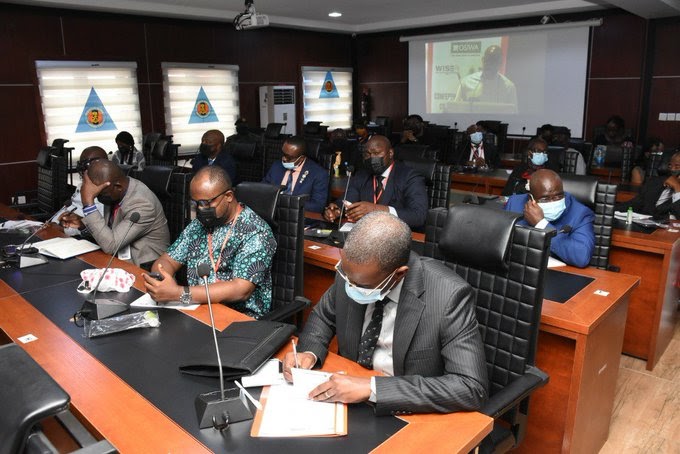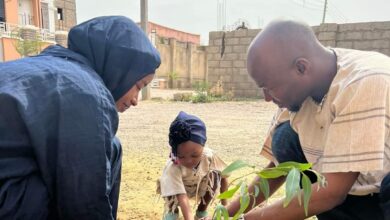Think-Tank Facilitates Dialogue On Bridging the Gap Between Security Sector, Civil Society
The conference on the connection between national security and civil space led to conversations on the deployment of the military, human rights and civil society.

Members of Nigeria’s civil society, retired and serving military officers on Thursday, May 6, participated in a dialogue on the relationship between national security and civil space, and ways to improve security in Nigeria.
The conference provided an opportunity for individuals with links to the security sector and civil society to discuss and highlight areas of friction and convergence.
The conversation organised by the Whiteink Institute for Strategy Education and Research (WISER) and the Army Resource Centre with support from the Open Society Initiative for West Africa (OSIWA) was held in Abuja, Nigeria’s capital.
According to Saleh Bala, a retired Brig-Gen and the President and Founder of WISER, the conference was designed to promote interaction to generate cooperation and collaboration among the key actors.
A similar thought on the significance of bringing the two sides together was shared by Catherine Angai, the Programme Coordinator, Democracy and Accountability, OSIWA, Abuja.
On his part, Jibrin Ibrahim, a panellist and senior fellow at the Centre for Democracy and Development (CDD) discussed the importance of having effective strategies to stem the insurgency and concerns about the rules of engagement within the civilian population.
“The armed forces must be rebuilt. As the state recovers, our traditional and religious institutions, as well as civil society, have a huge role in playing their part in the war against on-going insurgencies,” said Jibrin, who also spoke on the role of religion in promoting peace and security.
E.G Ode, another panellist and Senior Research Fellow, Nigerian Army Resource Centre, spoke on the impact of civil society on national security.
Ode, a retired Maj-Gen, also lamented on the interpretation of minimal use of force and spotlighting of military activities.
The retired General added that “I think I need to mention particularly the issue of human rights because oftentimes you begin to point accusing fingers at the military without looking at the other issues.”
According to him, the civil society, as much as it can engender peace and stability, can also be destructive in nature.
The Chairman of the panel, Prof. Christopher Ogbogbo who spoke on substantial shifts from regime security to national security, pointed out that no doubt there were still challenges in some circles with that.
Prof. Ogbogbo also discussed the training of the military and deployment in public space, noting that “ideally they should not be there.”
“The moment we have a situation where the appropriate security agency like the police has virtually disappeared in terms of effectiveness in the public space, you then find the commander in chief deploying the military into the public space,” he said.
He highlighted that to limit the use of the military in public space, “you have to properly train and recruit more men into the Nigerian police force.”
In response to remarks on regulation of civil society, Jibrin highlighted that there were existing regulations, however, the problem was around the implementation.
The conference was designed as a platform to encourage and improve the relationship between the state institutions and civil society in what was described as their common quest to balance national security and the rights, liberty and wellbeing of the Nigerian citizen.
Support Our Journalism
There are millions of ordinary people affected by conflict in Africa whose stories are missing in the mainstream media. HumAngle is determined to tell those challenging and under-reported stories, hoping that the people impacted by these conflicts will find the safety and security they deserve.
To ensure that we continue to provide public service coverage, we have a small favour to ask you. We want you to be part of our journalistic endeavour by contributing a token to us.
Your donation will further promote a robust, free, and independent media.
Donate Here




